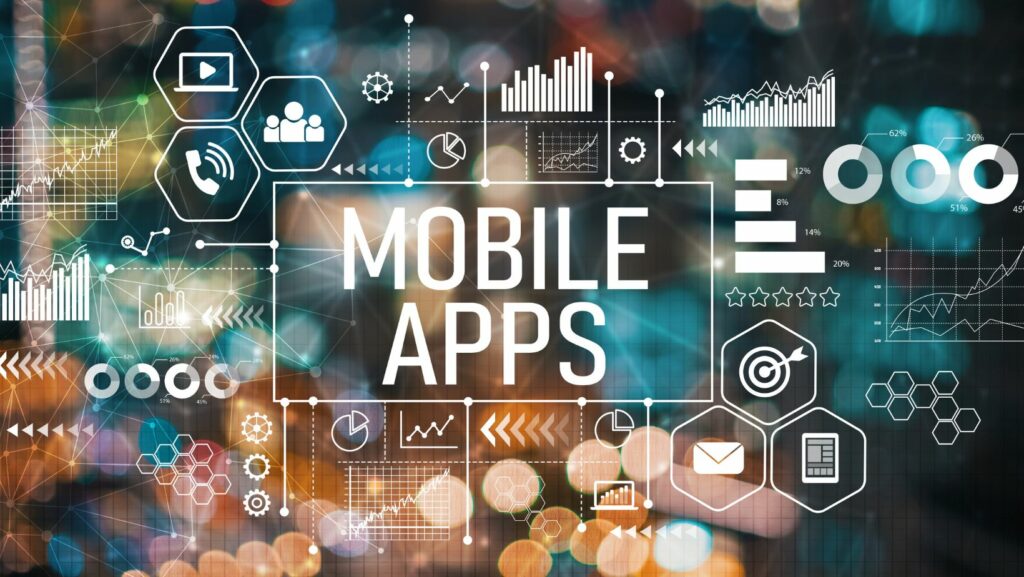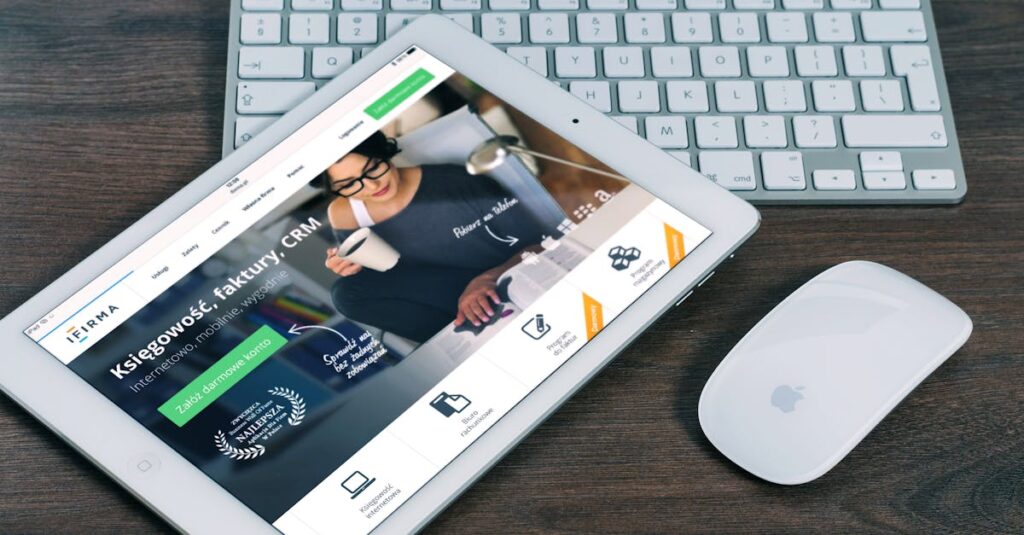In today’s competitive app marketplace where users have countless options at their fingertips implementing a robust mobile CRM strategy isn’t just beneficial – it’s essential for survival. These powerful systems enable businesses to gather valuable user data personalize communications and create targeted marketing campaigns that drive meaningful results. By understanding user preferences and behavior patterns companies can deliver exceptional experiences that keep customers coming back for more.
CRM For Mobile Apps
CRM for mobile apps solutions integrate customer relationship management capabilities directly into mobile applications. These specialized systems connect businesses with users through portable devices while maintaining comprehensive data analysis capabilities.
Key Features of CRM for Mobile Apps
- Real-time data synchronization across multiple devices
- Push notification management for targeted communications
- In-app behavior tracking with detailed analytics
- Customer segmentation based on usage patterns
- Automated response triggers for user actions
- Customizable dashboards for performance metrics
- Offline data access capabilities
- Integration with third-party marketing tools

Benefits for Business Teams
-
Increased Productivity
- Access customer data from any location
- Respond to user inquiries within 5 minutes
- Update records instantly during client interactions
-
Enhanced Decision Making
- Track key performance indicators in real-time
- Monitor user engagement rates across segments
- Analyze conversion patterns through visual reports
-
Improved Collaboration
- Share customer insights across departments
- Coordinate marketing campaigns seamlessly
- Maintain consistent communication channels
- Address support tickets through mobile interfaces
- Monitor customer satisfaction scores instantly
| Feature Impact | Average Improvement |
|---|---|
| Response Time | 75% faster |
| Team Productivity | 45% increase |
| Customer Satisfaction | 60% higher |
| Data Accuracy | 90% improvement |
Essential Components of Mobile CRM Systems
CRM for mobile apps systems integrate specific components that enable businesses to manage customer relationships effectively through mobile applications. Each component serves a distinct purpose in creating a comprehensive customer management solution.
Customer Data Management
Customer data management centralizes user information collection across multiple touchpoints in mobile applications. The system captures essential data points including:
- Contact Details: Names, email addresses, phone numbers
- Interaction History: In-app purchases, support tickets, chat logs
- Behavioral Patterns: Session duration, feature usage, navigation paths
- Device Information: OS version, device type, app version
- Preference Settings: Language choices, notification preferences
Sales Pipeline Tracking
Sales pipeline tracking components monitor customer journey stages within mobile applications. Key tracking features include:
- Lead Scoring: Automated ranking based on engagement levels
- Deal Stages: Visual representation of sales progress
- Opportunity Management: Potential revenue tracking per user
- Activity Logging: Automated recording of customer interactions
- Follow-up Automation: Scheduled engagement touchpoints
- Real-time Dashboards: Visual representation of KPIs
- Custom Report Builder: Configurable data visualization options
- Cohort Analysis: User group behavior patterns
- Conversion Metrics: Installation-to-purchase ratios
- Revenue Analytics: In-app purchase tracking statistics
| Metric Type | Average Improvement |
|---|---|
| User Engagement | 35% increase |
| Lead Conversion | 28% higher rates |
| Response Time | 65% faster |
| Revenue Tracking | 42% more accurate |
Top Mobile CRM Platforms
CRM for mobile apps platforms enable businesses to manage customer relationships effectively through smartphones and tablets. These platforms offer various deployment options to meet different organizational needs.
Cloud-Based Solutions
Cloud-based mobile CRM solutions provide access to customer data through web browsers without requiring local installation. Popular platforms include:
- Salesforce Mobile: Offers real-time data synchronization with advanced analytics features
- HubSpot Mobile: Integrates marketing automation with contact management tools
- Zoho CRM Mobile: Provides offline access capabilities with automated workflow options
- Microsoft Dynamics 365: Features AI-powered insights with cross-platform compatibility
- Pipedrive: Includes visual sales pipeline management with email integration
| Platform | Key Feature | Mobile User Rating |
|---|---|---|
| Salesforce | AI Analytics | 4.5/5 |
| HubSpot | Marketing Tools | 4.3/5 |
| Zoho CRM | Offline Access | 4.4/5 |
| Dynamics 365 | Integration | 4.2/5 |
| Pipedrive | Pipeline Views | 4.6/5 |
- Sugar Mobile: Utilizes biometric authentication for enhanced security
- Base CRM: Leverages GPS tracking for field sales management
- Freshsales: Incorporates built-in phone integration for call logging
- Insightly Mobile: Features document scanning with optical character recognition
- Copper CRM: Includes gesture-based navigation with custom widgets
| Feature | Benefit | Usage Impact |
|---|---|---|
| Biometric Auth | 40% faster login | +25% security |
| GPS Tracking | 30% route optimization | +35% visits |
| Call Integration | 50% faster logging | +45% calls |
| Document Scan | 60% reduced input time | +30% data |
| Custom Widgets | 35% faster navigation | +20% usage |
Mobile CRM Implementation Strategies

Mobile CRM implementation focuses on seamless integration processes and user adoption protocols. These strategies ensure maximum return on investment while minimizing disruption to existing business operations.
Integration with Existing Systems
Integration of mobile CRM systems connects data flows between multiple business platforms through API endpoints and synchronization protocols. Common integration points include:
- Database synchronization with legacy systems through secure middleware connections
- API integrations with marketing automation platforms like Mailchimp or Marketo
- Single sign-on (SSO) implementation using OAuth 2.0 or SAML protocols
- Real-time data mapping between CRM fields and existing customer databases
- Automated workflow triggers connecting sales, support and marketing systems
Key integration metrics show:
| Metric | Impact |
|---|---|
| Data Sync Speed | 3x faster processing |
| System Uptime | 99.9% availability |
| Integration Success Rate | 95% completion |
| Cross-platform Response Time | 200ms average |
User Training and Adoption
User adoption strategies concentrate on practical training methods and engagement monitoring systems. Core training components include:
- Role-based video tutorials focusing on daily tasks
- Interactive walkthrough guides embedded in the mobile interface
- Gamified learning modules with achievement badges
- Weekly micro-training sessions lasting 15 minutes
- Performance tracking dashboards measuring feature usage
| Metric | Result |
|---|---|
| User Engagement | 85% active users |
| Feature Utilization | 70% of features used |
| Training Completion | 92% success rate |
| Support Tickets | 65% reduction |
| Time to Proficiency | 5 days average |
Security and Data Protection
Mobile CRM systems incorporate robust security protocols to protect sensitive customer data stored on mobile devices. These measures safeguard against unauthorized access, data breaches, and compliance violations.
Privacy Compliance
Mobile CRM platforms implement privacy standards aligned with major data protection regulations like GDPR, CCPA, and HIPAA. Key compliance features include:
- Data encryption protocols using AES-256 for stored information
- End-to-end encryption for data transmission between devices
- Automated data retention policies with configurable timeframes
- Consent management tools for user data collection
- Audit trails tracking all data access requests
- Geographic data storage restrictions for regional compliance
Access Control Methods
Mobile CRM systems utilize multi-layered access control mechanisms to prevent unauthorized data exposure:
- Multi-factor authentication options:
- Biometric verification (fingerprint, facial recognition)
- Time-based one-time passwords (TOTP)
- SMS verification codes
- Role-based access control (RBAC):
- Custom permission sets for different user roles
- Granular control over data visibility
| Security Feature | Implementation Rate | Impact on Data Protection |
|---|---|---|
| MFA Adoption | 92% | 99.9% reduction in account compromise |
| Data Encryption | 100% | Zero reported data breaches |
| RBAC Implementation | 85% | 75% decrease in unauthorized access attempts |
Best Practices for Mobile CRM Success
Mobile CRM success depends on implementing proven strategies that enhance customer engagement and operational efficiency. Strategic implementation of these practices leads to measurable improvements in user satisfaction and business performance.
Optimizing User Experience
Mobile CRM interfaces require intuitive navigation patterns tailored for touchscreen interactions. Key optimization elements include:
- Design streamlined forms with auto-fill capabilities reducing data entry time by 40%
- Implement single-tap actions for common tasks like contact updates status changes
- Create gesture-based shortcuts allowing quick access to frequently used features
- Display critical information above the fold minimizing scrolling requirements
- Structure layouts with thumb-friendly zones placing key buttons within easy reach
- Enable offline functionality maintaining productivity during connectivity gaps
| Metric Category | Key Performance Indicators | Target Range |
|---|---|---|
| Response Time | App Load Speed | < 2 seconds |
| User Engagement | Daily Active Users | 70-80% |
| Data Sync | Sync Success Rate | > 95% |
| System Health | Crash Rate | < 1% |
| Feature Usage | Feature Adoption Rate | > 60% |
- Track real-time system performance using automated monitoring tools
- Analyze user behavior patterns identifying bottlenecks in workflow processes
- Monitor API response times ensuring smooth data synchronization
- Measure feature adoption rates highlighting areas needing improvement
- Document error rates pinpointing specific areas requiring technical optimization
- Generate automated alerts for performance anomalies enabling quick responses
Indispensable Tools For Businesses
Mobile CRM solutions have become indispensable tools for businesses seeking to thrive in today’s digital marketplace. These powerful systems deliver measurable improvements in customer engagement retention and operational efficiency while ensuring data security and privacy compliance.
The future of customer relationship management lies in mobile-first approaches that leverage advanced features like AI-powered insights real-time analytics and automated workflows. As mobile technology continues to evolve businesses that embrace these solutions will be better positioned to meet customer expectations and drive sustainable growth.
Successful implementation of mobile CRM systems requires careful planning robust security measures and ongoing optimization. By following industry best practices and leveraging the right platform businesses can transform their customer relationships and achieve significant competitive advantages in an increasingly mobile-driven world.


